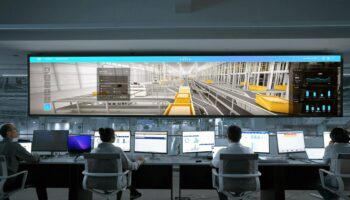Introduction
What was once a labor-intensive, hand-drawn process has evolved into a seamless blend of creativity and technology. In this article, we’ll explore the transformative role of technology in animation, from the early days of hand-drawn animation to the Cutting-edge innovations of today.
The Evolution of Animation Technology
Early Beginnings: Hand-Drawn Animation
The origins of Animation trace back to the late 19th Century with pioneers like Émile Cohl and Winsor McCay creating hand-drawn animations. These early animations involved painstakingly drawing each frame by hand, a process that required immense skill and patience.
Cell Animation and the Multiplane Camera
In the early 20th Century, the invention of cell animation revolutionized the industry. Animators could draw characters and backgrounds separately on transparent sheets (cells), allowing for smoother and more efficient Animation. Additionally, the multiplane camera introduced depth and dimension to animation by enabling the movement of multiple layers of artwork.
Technology’s Impact on Animation
Computer Animation: A New Frontier
The late 20th Century brought a seismic shift in Animation with the advent of computer-generated imagery (CGI). Pixar’s “Toy Story” (1995) marked a groundbreaking moment as the first full-length CGI feature film. This technology allowed animators to create realistic 3D worlds and characters, offering new storytelling possibilities.
Software and Tools
Powerful animation software like Autodesk Maya and Adobe After Effects has become the animator’s best friend. These tools enable artists to create intricate character movements, lifelike facial expressions, and dynamic visual effects. Moreover, the Integration of AI and machine learning has expedited animation processes and enhanced character interactions.
The Fusion of Technology and Artistry
Motion Capture and Performance Animation
Motion capture technology has been instrumental in capturing human movements and transferring them to digital characters. This technique, often used in blockbuster films, enhances the authenticity of character movements and expressions. Actors wear specialized suits with motion sensors, and their performances are then translated into animations.
Real-time Animation and Virtual Production
Real-time animation engines, Such as Unreal Engine, have gained popularity in the animation industry. These engines allow animators to create, edit, and view scenes in real-time, significantly reducing production time. Virtual production techniques, used in projects like “The Mandalorian,” blend real-world sets and digital environments seamlessly, creating immersive experiences for creators and audiences.
Animation in the Modern Era
Streaming Services and Interactive Storytelling
The rise of streaming platforms has expanded the reach of animated content. Shows like “BoJack Horseman” and “Rick and Morty” explore complex themes and storytelling, pushing the boundaries of what Animation can achieve. Interactive Storytelling, as seen in Netflix’s “Bandersnatch,” gives viewers agency in the narrative, enhancing engagement.
Augmented and Virtual Reality (AR/VR)
AR and VR technologies have unlocked entirely new dimensions for Animation. AR apps like Pokémon GO have brought animated characters into the real world, while VR experiences transport users to immersive animated worlds. These technologies are redefining how audiences interact with animated content.
The Future of Animation Technology
Looking ahead, the animation industry is poised for continued innovation. AI-driven animation, blockchain for content protection, and advancements in virtual production techniques will shape the future. Moreover, the blending of Animation with other emerging technologies like 5G connectivity and 3D printing will open up uncharted creative territories.
In conclusion, technology has been an indispensable partner in the evolution of animation. From hand-drawn frames to the boundless possibilities of CGI, animation’s journey is a testament to human ingenuity and the symbiotic relationship between artistry and technology. As we move forward, the fusion of technology and animation promises to enchant and mesmerize audiences in ways we can scarcely imagine today.
- THE EVOLUTION OF PLASTIC SURGERY - 17 June 2024
- CHOOSE THE RIGHT PERSONAL INJURY LAW FIRM IN CHARLOTTE NORTH CAROLINA - 16 June 2024
- Email UX optimization, offering actionable insights - 16 June 2024






1 Comment